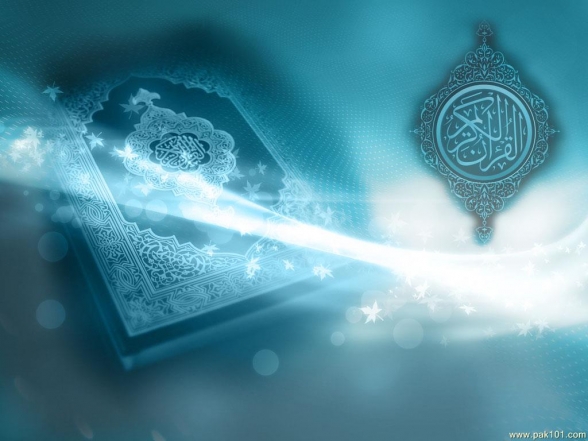Allah (ﷻ) has sent several prophets to various parts of the earth and to all of its various nations throughout human history. Prophets were chosen from among the people and had the same physical characteristics as everyone else. In essence, all prophets carried the message of Tawheed, with some receiving further revelation to deliver to their people.
They were no different than everyone else when it came to their physical appearance as prophets. Humans had no way of knowing whether or not the word was true without putting their faith in individuals who claimed to be prophets. However, numerous individuals originated and developed many beliefs regarding the purpose of life, creation, and divine guidance in each generation throughout history. As a result, any revelation from Allah (ﷻ) to a prophet needed to be certified or proven to be true.
Many prophets performed miracles involving the breaking of global law, which can only be accomplished by Allah (ﷻ). In this way, all of Allah’s prophets (ﷻ) challenged the people to produce something even remotely close to the miracles they demonstrated; if the people succeed, the validity of the one claiming prophethood is called into question. If, on the other hand, the people were unable to meet the challenge, this inability to beat the challenge established the prophet’s claim to prophethood, which would then necessitate accepting the prophet’s message.
The Qur’an was the miracle that established Muhammed’s (ﷻ) prophethood to the deen of Islam. Many have questioned the Qur’an’s validity since its inception, while others have attempted to present it as a document plagiarized from prior civilizations. Adopting the Qur’an as a revelation from Allah (ﷻ) and presenting it to non-Muslims requires an understanding of the nature of the Qur’an and its challenges.
Inimitability
The Qur’an and its inimitability, i.e., that it cannot be surpassed or even matched grammatically, linguistically, artistically, or in composition, was the Prophet’s miracle. Only the Qur’an claims to be in its original form among all the world’s texts. As a result, Allah(ﷻ) urged humanity to try to duplicate it, even if only in a small way. Allah(ﷻ) said:

 At first look, this goal does not appear to be particularly difficult; after all, any style of writing in any language might easily create more sentences that make sense. In tests all across the world, students are often required to imitate Shakespearean passages. Students in the Indian subcontinent routinely perform similar assignments with Allama Iqbal’s poetry. It is definitely conceivable to accomplish this feat after the conventions of a particular style or genre have been discovered.
At first look, this goal does not appear to be particularly difficult; after all, any style of writing in any language might easily create more sentences that make sense. In tests all across the world, students are often required to imitate Shakespearean passages. Students in the Indian subcontinent routinely perform similar assignments with Allama Iqbal’s poetry. It is definitely conceivable to accomplish this feat after the conventions of a particular style or genre have been discovered.
Understanding the nature of the Qur’an
Any text claiming divine origin must be able to be verified as actually coming from God. To believe in the direction, it must be beyond the human capacity to manufacture, thus anything claims to come from the Creator must be unique for us to believe. The Qur’an defies convention in such a way that it is regarded as the one exception to the law of language: this is known as the i’ijaaz, or Qur’an linguistic miracle.
This writing style has been identified with certainty. Poetry, prose, and rhymed prose are all components of languages. There are sixteen types of poetry (al-Bihar), as well as prose and rhymed prose, in the Arabic language. There are a total of eighteen styles, each with its own set of conventions.
However, Arabic has a different style, and the challenge is based on this style. The Qur’an’s style is universally recognized as a distinct one, a genre in its own right, and a nineteenth-century style.
The challenge of the Qur’an
The challenge to the whole of mankind is to write a chapter (surah) like the hundred and fourteen already in the Qur’an i.e. in this nineteenth style. The shortest chapter in the Qur’an is only three sentences or ten words long. Hence, only if someone is able to produce 3 lines of Arabic that are not in conformity to any of the Arabic styles mentioned, is grammatically correct, makes sense i.e. it conveys meaning and is not a jumble of words and is not already in the Qur’an, only then can we consider the challenge has been met. The challenge is to compose verses and imitate the style and not simply to copy what has already been revealed.
Many people have undertaken this challenge since the Qur’an was revealed. All attempts, however, consistently landed in the original eighteen Arabic styles, never the nineteenth. Since the revelation in the 7th century CE, this task has gone unrivalled.
The Arabic language is not a revelation in and of itself. The language was invented by Arabs from the Arabian Peninsula, who coined it, established its grammatical rules, and were its masters. The Qur’an was translated into their language, and they were asked to arrange the words and phrases while holding the language’s manual in order to emulate its manner. The Qur’an was revealed in the seven various dialects spoken in the Arabian Peninsula at the time, putting the challenge even more in their favor. The Arabs’ attempt was definitely a failure.
The eighteenth style was established with a finite collection of words, phrases, and sentences, all of which are already included within the Qur’an, despite over fourteen hundred years of work, effort, and suffering. Hundreds of millions of people, Muslim and non-Muslim alike, still speak Arabic. The Arabic letters’ building blocks are still available, as are the principles for making language.
If we look at who could have written the Qur’an, the issue of inimitability becomes clearer. There are four options available:
1. A non-Arab
- An Arab
- Muhammad (ﷺ)
- The Creator
The Arabic of the Qur’an is unparalleled, and it is regarded as superior to all other literature. Even now, it is thought to be the apex of written Arabic. As a result, the Qur’an could not have been written by someone who was not an Arab because they would not have known Arabic. It would be a stretch to say that such job could be accomplished without knowledge of the language. As a result, the initial possibility of a non-Arab authoring the Qur’an may be ruled out.
For the Qur’an to have been authored by an Arab, the test of inimitability would not pose a real challenge just as it would not in other languages. Whatever one writes, another can write in the same style. Yet the challenge has been attempted by leading authorities in Arabic throughout history and has left all exhausted. Whenever an Arab attempts a passage, the nineteenth style remains utterly elusive so we can safely state that the author of the Qur’an could not have been an Arab.
Muhammed (ﷺ), for all his greatness, was still an Arab like his brethren. It is also a matter of fact that the Prophet Muhammad (ﷺ) was never accused of authoring the Qur’an by his contemporaries, even those who sought his death and ruin. The only rational answer left is the Creator.
Recognizing the miracles of the Qur’an
The Qur’an isn’t poetry or prose; it’s a one-of-a-kind discourse unlike anything else written in Arabic. Its contents are always up to date and include a wide spectrum of human needs, challenges, and attitudes. Only those who are fluent in Arabic will be able to appreciate and taste the Qur’an’s amazing character, which is based on its eloquence and beauty.
Establishing Arabic as a requirement for immediately enjoying the Qur’an’s miraculous eloquence does not rule out the idea that non-Arabs could appreciate some parts of the Qur’an’s eloquence through a thorough study of its verses.
Allah (ﷻ) says:
 This ayah refers to the time of Nuh (Noah) (as). It comprises only 17 words in Arabic, but Allah (ﷻ) has told us the full story of the flood and its aftermath in it. It says that when the world was covered in water and clouds hung overhead, Allah () ordered the water to be drained from the land and the sky cleared of clouds. The Earth and the Sky then obeyed this command, and the country was no longer inundated, and Nuh’s ship came to rest on a mountain. Then Allah (ﷻ) tells us that Nuh’s people were both protected and annihilated from their oppressors. This ayah is talking about the time of Nuh (Noah) (as). In Arabic, it consists of only 17 words, yet in it, Allah (ﷻ) has related to us the entire All of these ideas are expressed in just one verse, with very short sentences, using six conjunctions, without repetition or faltering in the exceptional eloquence and style of the Quran.
This ayah refers to the time of Nuh (Noah) (as). It comprises only 17 words in Arabic, but Allah (ﷻ) has told us the full story of the flood and its aftermath in it. It says that when the world was covered in water and clouds hung overhead, Allah () ordered the water to be drained from the land and the sky cleared of clouds. The Earth and the Sky then obeyed this command, and the country was no longer inundated, and Nuh’s ship came to rest on a mountain. Then Allah (ﷻ) tells us that Nuh’s people were both protected and annihilated from their oppressors. This ayah is talking about the time of Nuh (Noah) (as). In Arabic, it consists of only 17 words, yet in it, Allah (ﷻ) has related to us the entire All of these ideas are expressed in just one verse, with very short sentences, using six conjunctions, without repetition or faltering in the exceptional eloquence and style of the Quran.
In reality, when Ibn Muqaffah, a person commissioned by some Arabs to develop something akin to the Qur’an, heard this ayah being recited by a person, he gave up his work and succumbed to the eloquence of the Quran (balagha). In Surah Al-Adiyat, Allah (ﷻ) says:

Here, Allah (ﷻ) describes the horses’ energy as they snort in anticipation, as well as the sparks created by their hoofs colliding with stones on the ground during their fierce rush towards the enemy. The scene is set in the early morning light, and the strategy is to catch the opposition off guard. As a vast troop rages across the desert sands, the dust collects behind them, and the horses demonstrate complete loyalty to their masters as they charge into the enemy’s ranks, brave and disciplined. The Qur’an tells this story with amazing elegance.
The Qur’an describes complicated events like the above fight in great detail with relatively few words. Allah (ﷻ) portrays the scene of a war in such a way that the reader can imagine not just a snapshot of it, but the complete course of the battle in this Surah. Although the Qur’an uses only ten words to describe the entire incident, a thorough explanation of its meaning in Arabic or any other language would take pages.



